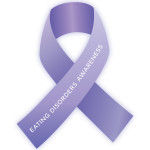 Because an eating disorder is both a medical and psychological condition, most people with eating disorders meet with a therapist or counselor as part of treatment. Although some people may feel embarrassed about going to therapy, it’s important to keep an open mind. Many teens, with and without eating disorders, find therapy very helpful.
Because an eating disorder is both a medical and psychological condition, most people with eating disorders meet with a therapist or counselor as part of treatment. Although some people may feel embarrassed about going to therapy, it’s important to keep an open mind. Many teens, with and without eating disorders, find therapy very helpful.
Why should I see a therapist?
There are a lot of benefits to seeing a therapist and the specific benefits can differ from person to person. Although there are many different types of therapy, therapy tends to be individualized, meaning that you and your therapist will work on what’s most helpful to you.
Here’s what an individual therapist can do for you:
- Provide a safe place to (privately) share feelings without judgment and without fear of causing problems or hurting someone else’s feelings
- Give you a place to address other emotional problems that may be related to the eating disorder such as depression, obsessive-compulsive behaviors, and/or substance abuse
- Help you work on things and events in your life that may affect your mood
- Help you figure out reasons why you may have developed an eating disorder, what function/role it has played in your life, and what triggers you to use certain behaviors
- Help you examine thoughts that might be unhealthy, distorted, or obsessive
- Teach you healthy ways to cope with stress and manage strong feelings
- Help you build self-confidence, self-esteem, and a positive body image
One teen wrote: “It has always been hard for me to open up even to my closest family members and friends. When I finally started opening up in therapy and sharing thoughts and feelings that I had never talked about before, I noticed a huge difference in my mood and how happy I was. Since then, my friends have told me what a huge difference they see in me and how much more open I am. I know this sounds cheesy, but there is no way this would have been possible had I not gone to therapy.”
What are the different types of therapy I might find?
CBT (cognitive behavioral therapy): A type of therapy that targets thoughts and behaviors that are unhealthy or unhelpful. The focus of CBT is to decrease negative thoughts or unhealthy behaviors.
DBT (dialectical behavioral therapy): A type of therapy that encourages you to accept the thoughts and feelings you have but to think in ways that prevent harmful behaviors. It is primarily a group-based therapy with individual therapy back-up. You keep logs of your thoughts and feelings and learn and discuss coping strategies.
Family therapy: A type of therapy that involves you and your family members meeting with a therapist. Many treatment programs will include family therapy because it can be a very helpful place to discuss family issues and tensions while there is a therapist or counselor there to find a solution. It can also be a good place to talk to your family members and friends about your eating disorder and how they can best support you throughout the process of recovery. Note: this is different from family-based treatment (FBT) which is described below.
Group therapy: Is when you and others with eating disorders meet with a counselor as a group and can share experiences, stories, goals, etc. It can be very helpful to talk to other people who are going through the same thing as you and get advice on what has helped them.
Family-based treatment (FBT): A type of therapy that empowers parents to learn ways to get their child to eat. The therapist meets with the whole family and does not explore issues, but supports the parents in feeding their child and supports the child in their efforts to recover. The goal of family-based treatment is weight restoration. This type of therapy is sometimes referred to as the “Maudsley” approach.
Tips:
- It’s ok to feel uncomfortable at first. It takes everyone different amounts of time before people begin to feel comfortable opening up to their therapist. If this is your first time seeing a therapist, it is totally normal for you to feel cautious.
- Be honest. Therapy gives you a chance to share how you genuinely feel without being judged or offending anyone. Everything you say to your therapist is confidential, unless you say something that makes them concerned for your, or someone else’s safety. The more honest you are with your therapist, the more helpful therapy will be.
- If you don’t think your therapist is a good match for you, find another therapist. It’s very important for you to feel like you can trust your therapist. If you don’t connect with them, don’t be afraid to find another one. The more comfortable you feel, the easier it will be for you to open up and be honest.
Source: Read Full Article
